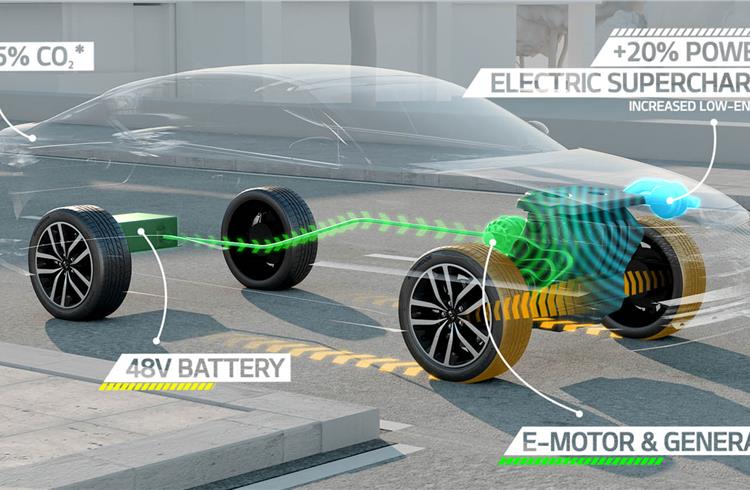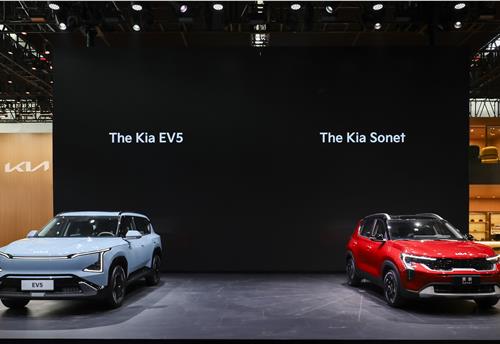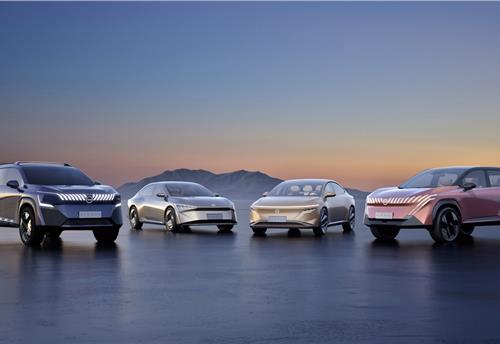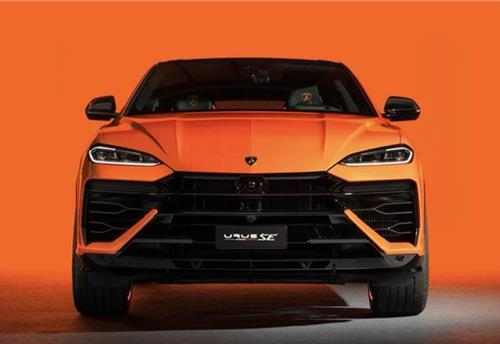Advanced lead-carbon batteries could help deliver a new generation of low cost 48V ‘super hybrid’ vehicles
The European Advanced Lead-Acid Battery Consortium (EALABC) will soon inform automotive industry executives
The European Advanced Lead-Acid Battery Consortium (EALABC) will soon inform automotive industry executives of the environmental and cost benefits of advanced lead-carbon batteries now being commercialised for a new generation of low cost 48V ‘super hybrid’ vehicles.
“The low additional cost of introducing 48V mild hybrid powertrains is proving a major attraction to carmakers, because it will help them comply with stringent CO2 regulations being introduced in 2020 with even tougher rules following in 2025,” says Allan Cooper, European projects coordinator for ALABC. “Significant emissions reduction and major improvements in fuel efficiency can be achieved with advanced lead-carbon batteries using materials that can be fully recycled into new batteries. This electrochemical breakthrough provides the most cost effective solution for 48V hybrids, which have a unique requirement for a battery demanding a high rate partial state-of-charge (HRPSoC) capability.”
The state-of-charge (SoC) of current lead-carbon batteries is typically maintained at between 30 and 50 percent, with the voltage and amperage meeting VDA requirements by not exceeding 54V at 150A when recovering joules of energy from vehicle deceleration (kinetic energy recovery) and exhaust gas energy recuperation (thermal energy recovery), also dropping not less than 38V at 180A when discharging energy for engine starting and torque assist. Advanced lead-carbon batteries for vehicles currently under development will be capable of operating in the 30 to 70 per cent SoC range at 12.5kW.
“Additionally, as with conventional starter-motor batteries, advanced lead-carbon batteries can be charged at minus 30°C (-22°F), which is simply not possible with lithium-ion batteries,” says Cooper. “This is an essential requirement for vehicles used in the snow-belt areas of the northern United States and Europe. And unlike lithium-ion they require no active cooling and no expensive battery management system.”
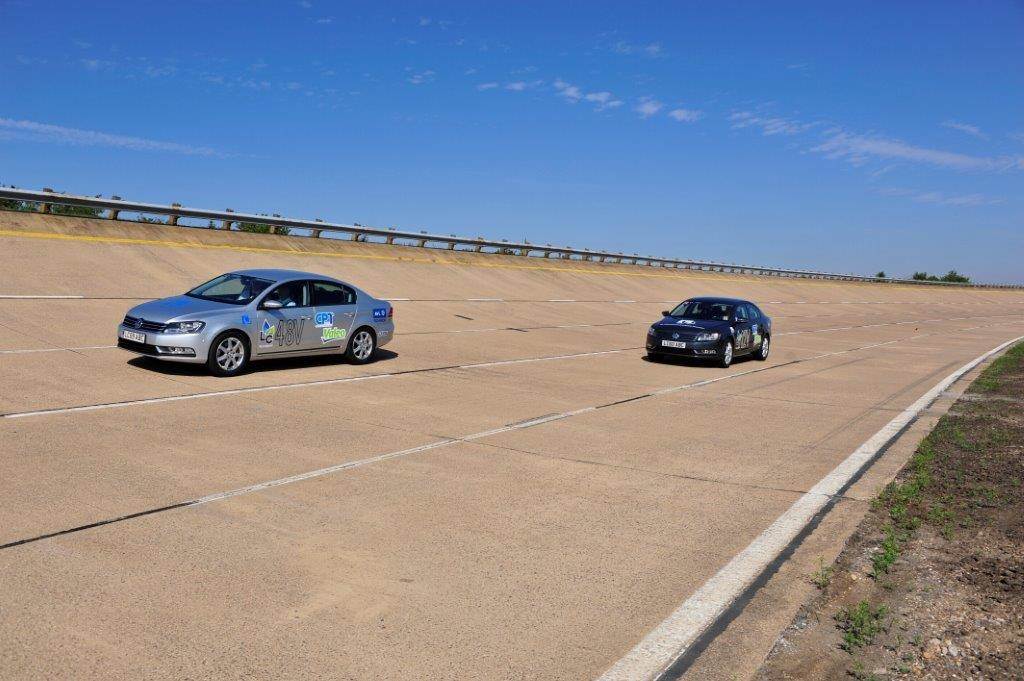
Augmenting its existing LC Super Hybrid programme (pictured above), which deploys a downsized petrol-electric powertrain, ALABC is working on advanced diesel-electric applications in development programmes being undertaken with car makers including Ford and Kia. Other industry partners comprise AVL Schrick, Controlled Power Technologies, East Penn, Exide, Faurecia, Furukawa, InnovateUK (previously known as the UK Technology Strategy Board), Mubea, Provector, Ricardo, University of Nottingham, US Department of Energy, and Valeo. The Consortium’s global initiative is supported by test and validation programmes carried out at high and low altitudes in Arizona, and at Millbrook proving ground in the UK.
“Future battery developments will most likely combine advanced lead-carbon electrochemistry with other types of battery design with for example bi-polar technology, which will reduce the lead content by as much as 40 per cent, substantially reducing the size of a 1kWh battery required for mild electrification of the powertrain,” says Cooper. “Meanwhile, advanced lead-carbon batteries, with their high levels of carbon in the negative active mass, already represent an exciting development that is truly state of the art, resulting in much improved battery performance ideally suited to 48V hybrids.”
The additional functionality of a 48V hybrid vehicle fitted with a Belt Integrated Starter Generator (BISG), compared with simple 12V stop-start systems, characteristically includes torque assist as well as kinetic energy recovery. This is achieved effectively using electronically controlled switched-reluctance motor-generators, which avoid the need for rare earth permanent magnets. These compact electrical machines can be rated up to 12.5kW in a package little larger than a conventional alternator. Connected to the powertrain belt system, they avoid the cost and complexity of directly driving the road wheels.
ALABC has employed commercially available Exide Orbital batteries as well as Furukawa and East Penn UltraBattery packs in its technology development programmes. The Exide Orbital absorbent glass mat battery is of spiral wound construction enhanced with added carbon in the negative plate. The UltraBattery is a hybrid energy storage device invented by Australia’s Commonwealth Scientific and Industrial Research Organisation (CSIRO). It combines ultra-capacitor technology with lead-carbon electrochemistry in a single cell with a common electrolyte. The result is an economical, fast-charging and discharging battery with high power and a long life, and can be made using existing manufacturing facilities. The technology has been licensed to East Penn, which is working on 14V modules as a building block for nominal 42V batteries required for 48V hybrid vehicles.
“With further development of 48V powertrain technology, we anticipate being able to reduce CO2 emissions by as much as 30 per cent compared with today’s baseline,” says Cooper. “Moreover, the low additional cost of €50-60 for each 1 per cent of CO2 reduction achieved is as little as one-tenth the premium of high voltage (200-400V) hybrids and pure battery electric vehicles – which presently are deemed unaffordable by the average motorist.”
RELATED ARTICLES
Kia displays EV5 and Sonet SUVs for Chinese market
Kia has unveiled a number of key models and new technologies for Chinese customers at the 2024 Beijing International Aut...
Nissan targets growth in China, unveils four NEV concepts at Beijing Motor Show
The two EVs and two plug-in hybrids are a joint effort with Nissan’s local partner Dong Feng and aimed to better address...
Lamborghini unveils Urus SE ahead of Auto China 2024
Electric-only range of 60km helps reduce emissions by 80%.





 By Autocar Pro News Desk
By Autocar Pro News Desk
 19 Nov 2014
19 Nov 2014
 3878 Views
3878 Views



